
Sustainability commitment is back
KiSS Misano-Keep it Shiny and Sustainable, the sustainability programme of Misano World Circuit, to be run for the 3rd year in a row at […]





Australia ready to host Ride Green Cup
Dooen Recreation Reserve in Horsham Australia will be the perfect venue to host the FIM Junior Motocross World Championship in 2018 and the fourth […]




PZM’s #RideGreen call to young riders!
On the occasion of the FIM Speedway Youth Gold Trophy Final 85cc in Rybnik on 29 July 2018, the Polish Motorcycling Federation (PZM) organised […]




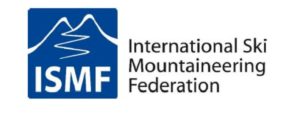
Just one word: Sustainability!
The International Ski Mountaineering Federation (ISMF) and all the National Federations are aware of current environmental problems and would like to collaborate in order […]



The search is on for the IAAF’s air quality monitoring device global partner
The IAAF’s search for a global partner to provide air quality monitoring devices (AQ) will reach a significant stage this week when five shortlisted […]




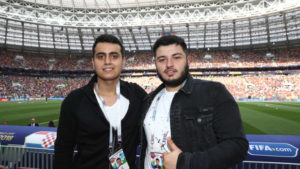
Winner of the FIFA climate campaign attends the Final
When Aram Cherkezyan received the email telling him he had won a trip to the 2018 FIFA World Cup™ Final, the 25-year-old IT worker […]

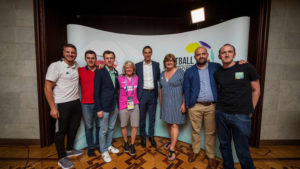
FIFA calls on stakeholders to continue their work on LGBT+ rights in Russia…
“After one month of events organised by the Russian LGBT Sport Federation during the FIFA World Cup, the closing conference took place at the […]


The FIA Environmental Accreditation Programme is aimed at helping motor sport and mobility stakeholders worldwide to measure and enhance their environmental performance. By introducing a clear and consistent environmental management system, it provides stakeholders with a three-level framework against which to accredit their activities.
It is organised around three levels:
- One-Star – Basic practice: Demonstrate basic environmental performance and a commitment to improve
- Two-Star – Good practice: Demonstrate good environmental performance and be close to follow internationally developed roadmaps toward environmental management
- Three-Star – Best practice: Demonstrate best practice and commitment to seek continual improvement through the implementation of an environmental management system
For any questions, please contact the FIA Sustainability team at afe@fia.com
PROCESS
It is recommended that FIA stakeholders wishing to obtain the accreditation start by filling in the Initial Evaluation Form, allowing the FIA Sustainability team to evaluate the current environmental performance and advise on next steps.
Following a first meeting with the FIA Sustainability team, the FIA Environmental Accreditation programme: Self-Assessment Tool should be used in support to these guidelines in order to implement the different recommendations and achieve the targeted level of accreditation.
Once the organisation is ready to be audited, the Formal Application Form should be completed and returned to afe@fia.com for review. A remote (One-Star, Two-Star) or on-site (Three-Star) audit will then be planned in order to finalise the accreditation process.
Following the audit process, an official certificate will be issued, including potential key recommendations for improvement and next audit date.



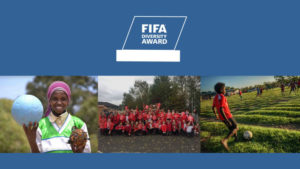
Finalists of the FIFA Diversity Award 2018 revealed
FIFA can today announce the list of finalists for the third edition of the FIFA Diversity Award, with the winner to be revealed at […]



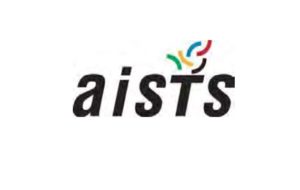
Climate Change and The Olympic Winter Games
The Olympic Winter Games have been held every four years since 1924, with the most recent edition taking place in PyeongChang, South Korea in February 2018. In recent years, we have witnessed a drastic effect on winter sports resulting in delays, cancellations and venue changes due to weather inconsistency.
This project focuses on the impacts and risks of climate change and explores its potential effects on winter sports in the future, specifically on the Olympic programme. Outlined below were the objectives for the research involved.

